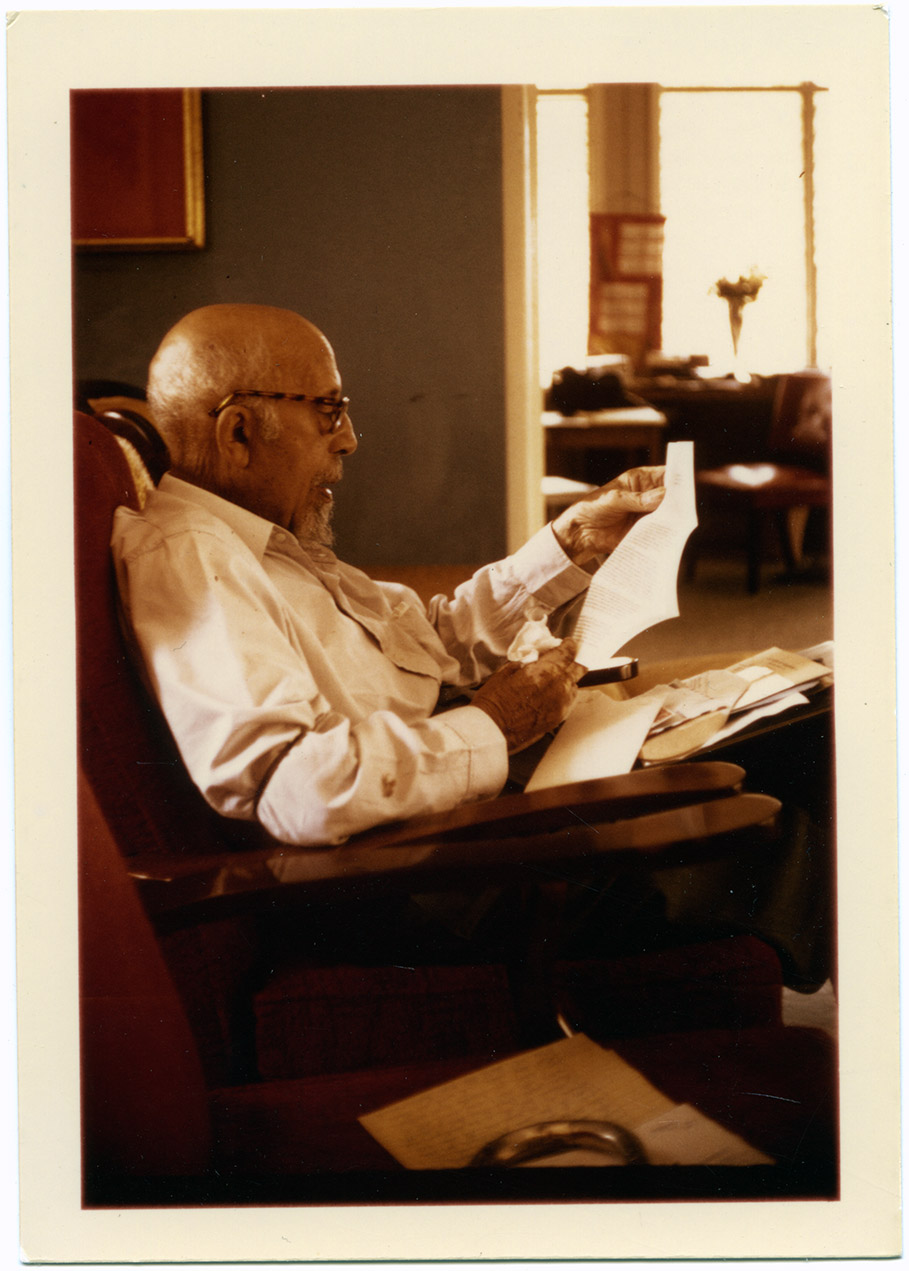Background on Bernard Jaffe

W.E.B. Du Bois at home in Accra, 1963
A New York native, Bernard Jaffe joined W.E.B. Du Bois' legal team in 1951, beginning a decades-long relationship as counsel, advisor, and close friend of the great civil rights leader and his wife, Shirley Graham Du Bois.
Born in the Bronx on May 23, 1915, one of two children of Russian immigrants Louis and Kate (Rosenberg) Jaffe, Bernard was an intellectual prodigy. Barely 18 when he graduated from Columbia University, he continued at Columbia for law school and by 21, he had secured his first professional position, working with the Puerto Rican Reconstruction Administration, a New Deal program designed to bring economic revitalization and modernization to the island.
After service in the Army Air Corps during the Second World War, Jaffe returned to New York City and entered private practice. Radical in his beliefs and politically engaged, Jaffe was asked to join the legal team of the National Committee to Defend Dr. W.E.B. Du Bois and Associates in 1951, taking part in one of the signature civil liberties cases of the McCarthy era. Du Bois and his four co-defendants, all white, were officers of the Peace Information Center, an organization dedicated to nuclear disarmament, and at the high tide of the McCarthy-era, advocacy for peace and disarmament signified to the Justice Department that the defendants were acting on behalf of the Soviet Union. Already the for investigation by the FBI, Du Bois and his colleagues were charged under the McCormick Act of 1938 for failing to register as foreign agents. Although many of Du Bois's supporters distanced themselves, the legal team led by Congressman Vito Marcantonio, rallied support and ultimately succeeded in having the case dismissed.
From the time of the trial, Jaffe remained connected to Du Bois and his family, and when the Du Boises emigrated to Ghana at the invitation of Kwame Nkrumah, Jaffe was retained as personal attorney to handle the details. He served in that capacity until Du Bois' death in 1963, and thereafter continued as counsel and friend of Du Bois' widow, Shirley Graham DuBois, until her death in 1977. Trusted by both Du Boises intimately, Jaffe assisted the couple in a wide range of endeavors, playing a vital role in handling publication rights, helping Shirley find a publisher for an edited series of her husband's letters (edited by Herbert Aptheker), and assisting in placing the W.E.B. Du Bois Papers at UMass Amherst and the Shirley Graham Du Bois Papers at Harvard. Furthermore, Jaffe was a trusted advisor to David Graham Du Bois in managing his step-father's estate, serving on the executive board of the W.E.B. Du Bois Foundation for nearly thirty years.
Brilliant and versatile, Jaffe was a legal generalist in his other work, handling a wide range of clients and causes, often emerging from his concern for people afflicted by poverty, political oppression, and racial inequality. Bernard Jaffe died at his home in Edgewater, N.J., on December 31, 2015.

